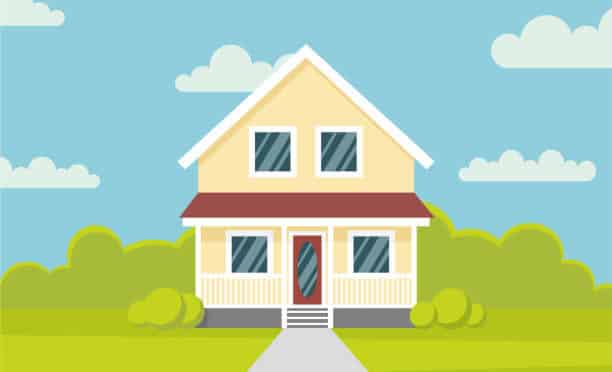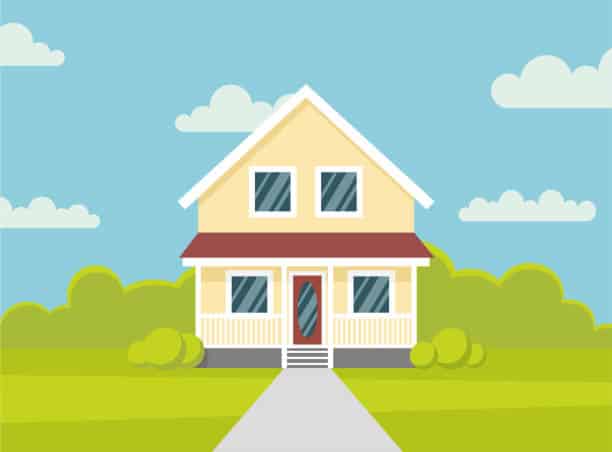Let's Get Started
You'll get the most value from financial planning if your specific goals and needs match a firm's philosophy and services. Let's learn more about each other.
Ready to Get Started?


You’re getting ready to retire within the next five years. You’ve carefully researched your options for Social Security and your 401(k), and you’ve diligently mapped out how much income you’ll have to meet your daily living expenses. Great, you’re on the right track for retirement! But don’t forget about your plan for that big asset you might be sitting in right at this moment—your home.
Your home is a unique type of asset in the pre-retirement discussion—it has emotional, social, and financial significance in a way your 401(k) balance never will. Whether you plan to garden as a pastime during retirement, host your grandkids for weekend playdates, or make use of your home’s equity for emergency funds, you must be clear-eyed about what you need and want from your home during retirement.
Let’s dive into three smart choices you can make before retiring:
In the five years before retirement, you’ll want to give extra scrutiny to your monthly expense budget, with the goal of cutting that which you don’t need in retirement. And what stands out as the top expense for many wannabe retirees? The home mortgage. This is your chance to cut your housing expenses, but if you need a little motivation to pay more now against the mortgage, consider this:
Now’s the time to pay off your mortgage, it’s the first smart move you can make with your home.
From a financial standpoint, buying a bigger or more expensive home as you get within a few years of retirement is almost always a mistake. Bigger/more expensive homes have higher taxes, operating costs, and repairs. Taking that financial commitment on as you contemplate a fixed income should really give you pause.
Yet, many late-stage workers, often at the height of their earning power and likely without children at home, see a new, upgraded home as their reward after all these working and family-raising years. The problem here is one of goal-setting. Having a new, lovely home is not a bad goal inherently, but you will have to consider where the expense for that new home fits in with other goals you want to pursue, like travel. If you haven’t looked at your overall goals for retirement, you need to do that first.
By this, I don’t mean that you must determine your plan for an assisted-living facility at this point (but see #4 below). Rather, start your plan for what happens to your home as your retirement progresses.
According to an AARP study, fully 90% of retirees expect to stay in their existing home and community. That might seem surprising, given the American legend of snowbirds living in the Sunbelt. But because you do want to make a good decision with your home, these years before retirement warrant asking some long-term questions like:
On this last point, one thing many retirees contemplate for emergencies is a ‘reverse’ mortgage. It’s wise to understand the advantages and limitations of reverse mortgages. Simply, they are a form of a home-equity loan, in which the bank agrees to pay you cash for the equity value you’ve built up. They can only be used by owners who are 62 or older, and they often have significant up-front closing costs and insurance.
From a planning perspective, a reverse mortgage is a decent tool to help pay for true financial emergencies, like nursing home care. But they should be considered only after other resources have been examined. The time to line up those resources is now, before you retire, so you know what’s possible.
Another strategy to consider now is “aging in place”. This is a growing movement, and generally refers to how you can modify your house and community supports so that you can stay in your existing house longer as you age and become less mobile or healthy.
From a financial and emotional standpoint, aging in place can be a win-win. You avoid the high cost of someplace like an assisted living facility and gain the freedom to remain in the home you love. However, it takes work, planning, and money to properly age in place. It’s not sufficient to slap some anti-slip mats in your bathtub and call that a home you can stay in until you’re 95.
Your plan for your home in retirement is a highly personal decision, but it has a big impact on your retirement finances. In the five years before retirement, you should start aggressively paying down your mortgage, avoid the urge to upsize, and consider your long-term choices for housing. A cornerstone of a successful retirement is enjoying your home, put in the effort to plan now!